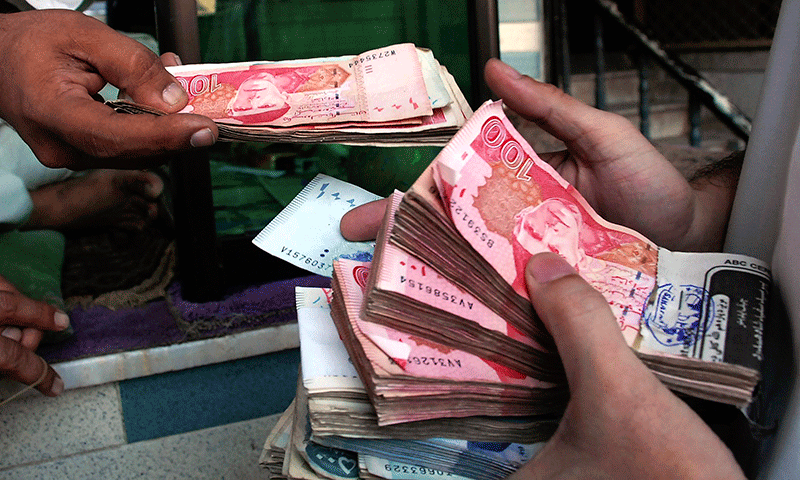By Staff Reporter
KARACHI: Pakistan’s public debt has increased by 27.1 percent year-on-year to reach Rs54.353 trillion at the end of February 2023, according to data released by the central bank on Wednesday.
This surge is attributed to high financing requirements, rupee devaluation, and increasing interest rates.
However, the government’s total debt has slightly decreased by 1.1 percent month-on-month, coming in at Rs54.942 trillion in January.
Nonetheless, the debt has increased by 14 percent in the first eight months (July-February) of the current fiscal year, up from Rs47.784 trillion at the end of June.
The domestic debt has risen by 23 percent year-on-year to reach Rs34.072 trillion at the end of January, with a 9.78 percent increase during the first eight months of the current fiscal year.
On the other hand, the foreign debt surged by 34.7 percent to Rs20.282 trillion in February, up from Rs15.056 trillion a year earlier. The external debt grew by 21.1 percent during the period July-February FY2023.
The government has been forced to take on more debt from domestic sources due to a revenue shortfall and excessive spending demands.
Direct financial borrowing from the State Bank of Pakistan is not possible, and foreign financing has dried up without an International Monetary Fund program. The increase in external debt is also a result of a weaker currency, which fell in value after the government lifted an artificial ceiling on the local currency in late January.
Interest payments on debt increase significantly when both domestic and international interest rates rise. With the policy rate now at 21 percent, a 100 basis point increase will result in higher interest payments on the domestic debt, causing the price of the government’s debt service to rise.
The Finance Ministry’s half-yearly debt bulletin contains a dire warning that the government’s ability to sustain the total public debt is deteriorating.
The public debt report for the period of July-December 2022 highlights several deteriorating indicators, including the rupee’s depreciation, increasing interest rates leading to higher domestic debt, and foreign countries’ reluctance to extend loans, pointing to the government’s growing vulnerability to sustain and service the massive debt burden.
To restore macro-stability and confidence and avert a public debt crisis, implementing the macroeconomic and structural reforms agreed upon under the IMF program and securing urgently required external refinancing are crucial, according to The Pakistan Development Update, a flagship report from the World Bank.
The report projects Pakistan’s external financing needs to be on average $28.9 billion per year, or 8 percent of GDP, during FY2023-FY2025, including IMF repayments, maturing Eurobonds, and repayments against Chinese commercial loans. However, the reserves position is projected to gradually improve.
Meanwhile, the government raised an impressive Rs2.2 trillion through the auction of Market Treasury Bills on Wednesday. This exceeded the pre-auction target of Rs900 billion by a significant margin. Despite this, the yields on short-term papers did not experience a significant change.
Specifically, the yield on the three-month T-bill remained stable at 21.9997 percent, while the yield on the six-month paper dropped by just one basis point to 21.9789 percent. The yield on the 12-month T-bill increased by 40 basis points to 21.8898 percent, according to the central bank’s auction result.
Analysts have attributed the stability of the T-bills’ yields on the three and six-month papers to a lower-than-expected rise in the interest rate. “The increase in the interest rate was lower than expected. The market was anticipating a 200 basis point increase, but it turned out to be only 100 basis points,” said Fahad Rauf, Head of Research at Ismail Iqbal Securities.
The significant government borrowing through T-bills reflects its high funding requirements. Meanwhile, the benchmark six-month Karachi interbank offered rate decreased by 38 basis points to 21.98 percent.
Copyright © 2021 Independent Pakistan | All rights reserved




